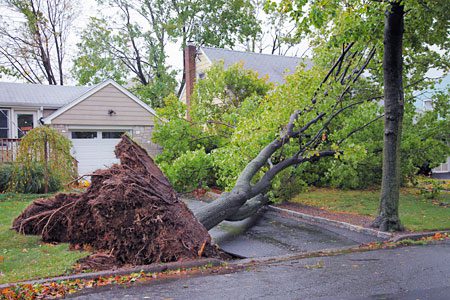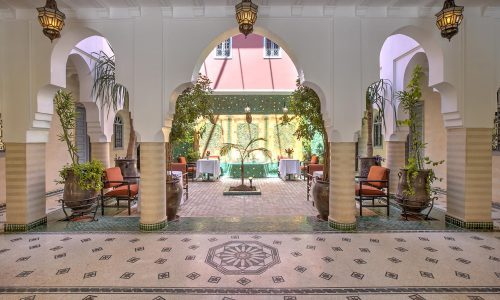For me, a community is a collection of people who are connected through at least one attribute(s). The factor that holds them all is at the heart and constitutes the core of the community. Like the root and suffix (common-unity) the term refers to a specific part of people are bound through a common thread. In the realm of Public Health, we see communities as groups of people who may be affected or infected with certain kinds of illnesses depending on their age or social situation. The term “community” is a common connection that brings individuals together to promote and help one another to defeat those dangers. Human beings require a sense that we belong and that feeling of belonging connects us to the numerous connections we make.
Communities are also full of resources, which is the place where their collective aspects come into the picture. We all are part of numerous communities (family or work, neighbourhood and so on. ) We constantly change between them, based on the current situation. The community is where we get comfort during difficult times. If things don’t go well in one place there is the option of moving to a different one. My personal experience is that it is in the communities that one can find the right balance between physical and mental fitness.
Sarah Michelson, Teen Intern for The Food ProjectCurrent Program Participation The Food Project: Building Local Agricultural Systems Today (BLAST)
People in the modern world depend on communities for their daily needs. The basic necessities of life don’t originate from the individual however, they do come are derived from a complex “web of mutuality,” as Martin Luther King, Jr. once put it. Though most people must join a group to meet their needs, the majority of people would like to be part of a community for the reason that there is something inexplicably wonderful when you are part of a community of people who have something greater than the geographical area. . . Something they are passionate about. A shared passion that, when shared, makes people seem less lonely. The community can be a secure space.
There is something dangersome in communities. A community that is secure and comfortable can be so appealing that people overlook the world outside their own community, or view the other communities with a smudge of prejudice. For more details lote setor habitacional tororó
I am part in The Sudbury community, which is an wealthy suburban area of Boston. As I contribute to the needs of my local community, I must take a break away from Sudbury to get a better understanding of the life like is in Bolivia or in Bolivia, the American South, or in Roxbury which is the inner city area where there is a place where the Food Project does a lot of its work. I must visit these locations for me to be reminded that the lifestyle I’m familiar with isn’t the only option or most effective way to live. I must be reminded that even though I contribute the community I live in, others deserve the same respect. I must be reminded that if I make connections with someone on the basis of experiences, it’s not because they are from Sudbury. It’s because we’re humans, and I belong to the global community.
Alan O’Hare, Schenachie (Celtic Storyteller) and Director Life Story Theatre
In the quiet of a morning walk the sparkling music of a red cardinal perched on an oak tree made me feel more deeply. As I listened at him as well as his partner in the nearby tree swaying to one another and a couple with the dog agreed to join me. Without saying a word, it was evident that we were all enthralled by the beauty of their music, and we all gathered in an atmosphere of celebration and appreciation for the beauty of Nature.
The bright new light, the morning song and the momentary contact with fellow travelers brought forth images of other communities. Every single one of them regardless of whether it’s for learning, work or healing, prayer or for friendship, creates the feeling of safety to a purpose, a shared mission, and values. Through them, each one of us learns our identity and our strengths are.
The Sufi tradition it is believed that the main reason for living is to be awake to the core of who we truly are. When we realize this we are invited to accept this truth with love. The benefit of community gives every one of us with the flame of affirmation and the support needed in achieving this. . . Even on days when we don’t feel any fire.
At that point, we are able to think of those words from Thich Nhat Hanh, who said “I want everyone to raise your hands and say the truth. Do you believe, like me, a person in our hamlet keeps the fire burning?”
Frances Moore Lappe, Author of You Have the Power: Choosing Courage in a Culture of Fear and Democracy’s Edge
Community — which is to my “nurturing human connection” -is vital to our survival. We humans are not able to thrive without the community. This isn’t an option and a good thing. social interaction is crucial to our health.
Participation in the life of society is the foundation for community. By inclusion , I refer to universal access to entry that starts with legal protections from discrimination based on race, for example as an example but going way, way beyond that. Inclusion is the right to work that pay fair wages and decent housing, as well as effective schools and health care that is reliable. If you take away “a man of a job or an income,” stated Martin Luther King, Jr., “you are in way telling that man that he doesn’t have a right to exist…it is a crime psychologically. …”
But the current dominant culture is one of exclusion. We’ve allowed the government to let the minimum wage fall 25% of its value over thirty years. One in five positions across America U.S. will not lift four families from poverty. We’ve let health care to be a barrier for millions of Americans, and America currently ranks 42nd in nations worldwide in terms of survival for infants.
This profoundly troubling assault on the community requires us to recognize an irony: We have to take on the risk of being excluded, alienating or, at the very least, causing distress to others to advocate for inclusion in our communities. This could mean saying something regardless of whether it creates uncomfortable feelings from other people and reaching out to those exclusion even when it is awkward, participating in public actions that are visible to the public like a vigil, or door-to-door schooling even when there is a risk of angry rejection.
Recognizing that community is vital to our well-being is a call to a certain kind of bravery: facing our fears of being excluded and standing up for inclusiveness.
Lisa R. Fortuna, MD, MPH, Staff Psychiatrist, Cambridge Health Alliance, Center for Multicultural Mental Health Research, Cambridge, Massachusetts
It is about developing by sharing experiences with others. I grew up in an incredibly rich and caring community, which has helped shape my identity and self-confidence as an African American Latina woman. I’ve been blessed to have been around families and children who are involved in enhancing the health of their communities. In the past, which is now thirty-five years old I am a child and an adolescent psychiatrist. Every day, I talk to young people. I get to be present in their lives in their most challenging and difficult moments. Due to the uniqueness of these young people are and also because of the gratitude I have received from them from them, I aim to become the most effective doctor I can be and help those who need me most.
Through the years, my faith has been a major controlling and shaping influence in my life. One that is very private, extremely quiet, and nonetheless has guided all of my decisions in my life. The connection between community, medicine and my personal faith began with a long-standing and early curiosity about the environment that I was surrounded by. My imagination was ignited by a passion of medicine and science, and I was also awed by the power of the community and profound respect and appreciation for healing. This outlook on life was influenced by my mother, my grandmother and my older people around me who took time to be a good friend. That’s what community is about… taking the time to take care of each other.
Shirley Suet-ling Tang, Assistant Professor, Asian-American Studies & American Studies, University of Massachusetts Boston (UMASS)
I accepted the opportunity of writing in the BRC newsletter to be able to consider my own thoughts on community-building following twelve years teaching, and developing Asian American Studies in both in the classroom and on the streets for students of urban refugee/immigrant communities. I first became interested in Asian American Studies, and ethnic studies generally due to its groundbreaking dedication to community-building, justice-centered training, as well as practical hands-on work. I’ve always believed the best places to learn and teach are not behind locked doorways of an ivory tower, but in communities where people are facing being marginalized and excluded from the power of decision-making and rich resource opportunities.
A few years ago, it was just in the realm of. When I was able to hear the stories of young people and their families faced challenges on the ground, and when I realized that they have always been at the forefront of fight for a fair and healthy society for all, I begun to consider things from their point of view and put my efforts into keeping the dreams of their parents alive. Since I started working at the University of Massachusetts, Boston, I have become a U.S. resident, and like many of the students and community members that I work with, I also found my life becoming more and more tied to the political and social situation of immigrant communities/communities of color in U.S. society.
What is the reason why community is vital? Because it helps us avoid the isolation and loneliness that we worry about. Because people in the real world are forced to choose. Because it is about finding one another and finding a place where we can find our home. However, we also have a need to create community, not just as survivors of the current world order, but also because we bring different perspectives to a world that erases our distinctions. When we confront differences, we are able to address the issue of the economic and social basis that make up our community. Through building communities, we can bring some order into the chaotic world.


